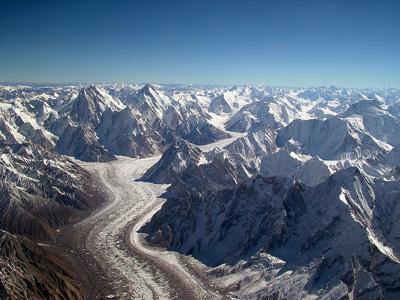Canadian Weather
by Sam
(Canada)
Canada is a country of weather extremes. I live in Canada; I currently live in Ontario, but I have also lived in British Columbia.
The winters are cold in Ontario, but the summers in southern Ontario are quite warm. Today, August 31st, it is supposed to reach a high of 30 degrees Celsius (86 degrees Farenheit, with the humidex it's supposed to feel like 100).
Our summer lasts from June to the end of August and sometimes a bit into September. It doesn't start to get really cold until the end of December. January can reach lows of -20 Celsius, February is cold too, but it starts to warm up again in March.
This year we had a nice warm spring with temperatures in the 20's in April.
Vancouver, British Columbia is not very cold during the winter; it may reach freezing some days, but it usually doesn't stay that cold for very long. It rains pretty much all winter long there, and stays just cold enough that you don't really want to do anything outside. Summers aren't as warm as they are in Ontario, and it rains quite a bit during the summer as well. It's nice and green there however, with a long growing season.
Barry's Response - Thanks, Sam. Newcomers can see what range of climatic conditions to expect from two points in (nearly) opposite ends of the country. Especially since these are the two places visitors and immigrants are most likely to start.
In the Prairies, where I live, it's usually dry with some areas looking like deserts in summer and powdery snow in winter.
Search this site for more information now.
In comparing and contrasting the weather between Vancouver and Toronto, notable differences can be observed that reflect the unique climatic characteristics of each city.
We can appreciate the diverse climates across Canada by understanding these variations in weather. It doesn't matter whether you prefer Vancouver's milder, wetter climate or Toronto's greater temperature extremes, both cities offer something different. Let's look at this in a bit more detail:
- Vancouver, on the west coast of Canada, has a milder climate than Toronto. The city's proximity to the Pacific Ocean and mountains contribute to its unique weather. The winters in Vancouver are mild, with temperatures rarely dropping below freezing. Throughout the year, the city gets plenty of rain, so it's lush and green.
- Toronto, on the other hand, has a continental climate that's influenced by its inland location and the Great Lakes. Summers are hot and humid, and winters are cold. Temperatures in Toronto can reach the high 20's to low 30's Celsius in summer. Winters can be quite chilly, with frequent snowfall and temperatures below zero.
- Toronto is much windier than Vancouver, measuring about double Vancouver's windspeed all year long.
- There's a big difference between Vancouver and Toronto when it comes to precipitation. Winter rainfall in Vancouver is higher than other times of the year, while rain in Toronto is more evenly distributed. These divergent precipitation patterns are caused by the prevailing weather systems and the unique geography of each city.
- Furthermore, Vancouver experiences more foggy conditions and overcast skies, while Toronto gets more sunny and clear days. Each city's ambiance and atmosphere can be shaped by its weather patterns.
Join in and write your own page! It's easy to do. How? Simply click here to return to Cold, eh?.
Do you have concerns about air pollution in your area??
Perhaps modelling air pollution will provide the answers to your question.
That is what I do on a full-time basis. Find out if it is necessary for your project.
Have your Say...
on the StuffintheAir facebook page
Other topics listed in these guides:
The Stuff-in-the-Air Site Map
And,
Thank you to my research and writing assistants, ChatGPT and WordTune, as well as Wombo and others for the images.
GPT-4, OpenAI's large-scale language generation model (and others provided by Google and Meta), helped generate this text. As soon as draft language is generated, the author reviews, edits, and revises it to their own liking and is responsible for the content.



